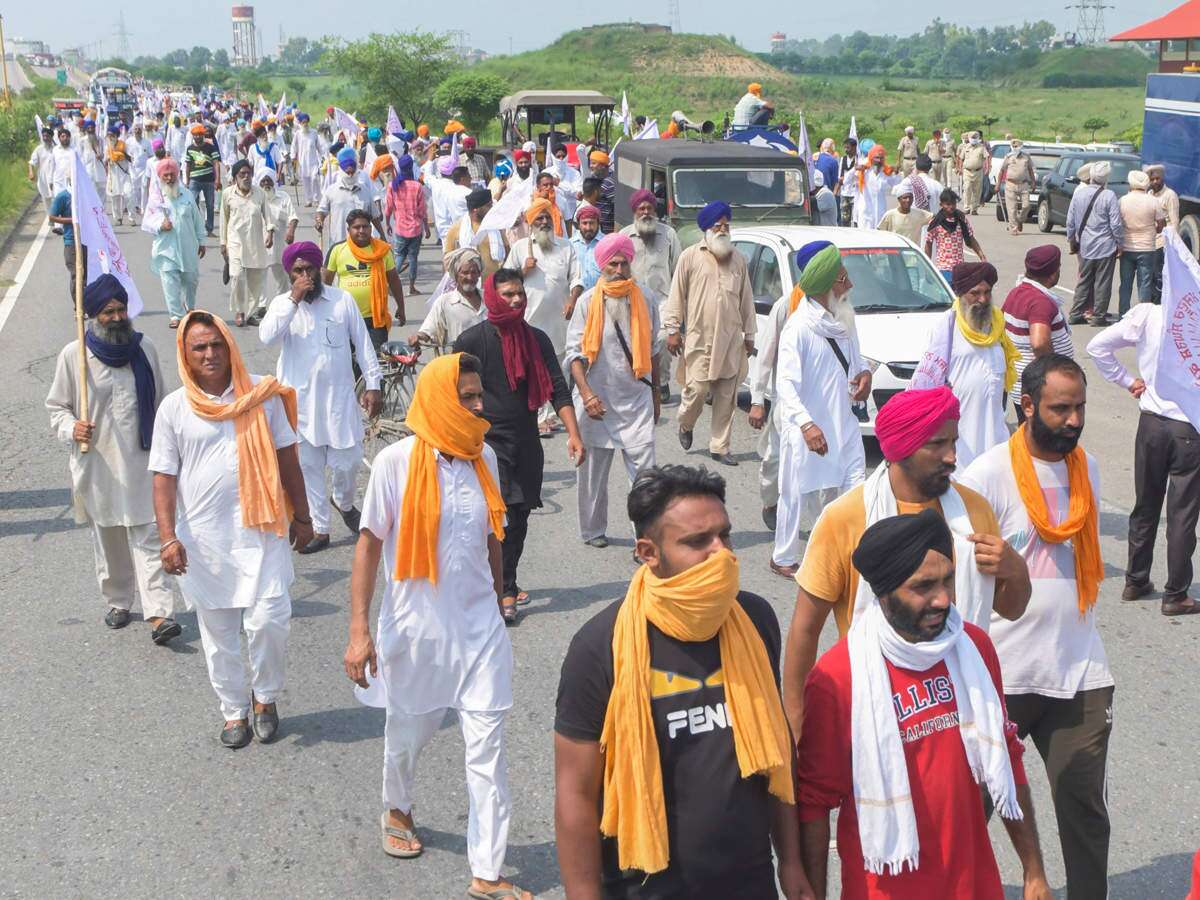Farmers from Punjab, Haryana, and a couple of different states were scheduled to arrive in Delhi on Thursday to demonstrate against the Centre’s new farm laws. A call of “Delhi Chalo” was issued in this regard by different Farmers’ groups and it prompted prohibitory steps and measures by the Haryana government and the Delhi Police.
The new farm laws against which the protests were planned are the-Agricultural market Farmer’s Produce Trade and Commerce(Promotion and Facilitation) Bill, 2020, Farmer (Empowerment and Protection) Agreement of Price Assurance and Farm Services Bill, 2020, and the Essential Commodities (Amendment) Bill, 2020. The farmers, many leaders and experts have identified various errors in these three laws, which many fear would lead to the decimation of the farmers’ income by bringing in corporate lobbyists and blackmarketing.
Delhi Police had responded in a tweet, “All the requests obtained from different farmer Organizations concerning protest in Delhi on 26 and 27 November had been rejected and this has already been communicated to the organizers.”
On Thursday morning, cemented barricades and cranes were seen at Delhi’s Badarpur border. These were erected to halt the farmers’ protest march towards Delhi. Along with Delhi Police personnel, Central Reserve Police Force (CRPF) jawans were also been deployed at the Badarpur border. Police were seen using tear gas shells and water cannons to prevent the people from moving ahead for the protests, in a weather where the temperature was at around 14-15 degrees Celsius. At many places, trenches were dug by the Haryana government and the central government to prevent the farmers from reaching Delhi.
Delhi Police Public Relations Officer said, “Section 144 will be imposed and there will be checks at all entry points into Delhi. Only those who are genuinely coming into Delhi because they live here or work here will be allowed in. If any protester tries to enter by faking their identity, legal action will be taken.”
The Haryana Police tried to seal its borders to prevent farmers from marching towards the national capital and had set up traffic redirections on four significant public roadways prompting Delhi directed traffic to be diverted or blocked on Ambala-Delhi, Hisar-Delhi, Rewari-Delhi and Palwal-Delhi national highways on November 25, 26, and 27. In Punjab, passages from the regions of Panchkula, Ambala, Kaithal, Jind, Fatehabad, and Sirsa were also obstructed.
Farmers’ groups demanded that they will go to the capital for a protest on November 26 and 27, despite the Delhi Police denying authorization for a convention to be held at the Jantar Mantar protest site. The permission was denied due to the resurgence of COVID-19 and associated limitations. Punjab farmers’ leaders additionally stated that they have not yet decided on the most adept method to react to the Centre’s call for discussions to determine the circumstances emerging from the stoppage of goods trains to the state. There has been no agreement among the various groups about how to engage with the government.
Satyawan, a Haryana-based Farmer leader from the All India Kisan Khet Mazdoor Sangathan stated that the Covid19 should not be made an excuse to prevent the protests.
The All India Kisan Sangharsh Coordination Committee (AIKSCC), a platform including more than 300 farmers groups requested the cancelation of the three dubious and heavily criticized Farm laws passed by parliament. Applications had been made for authorization to hold an assembly at Jantar Mantar, close to Parliament Street.
In the latest development, the farmers have been allowed to hold peaceful protests at Nirankari ground in North-west Delhi. Punjab CM Captain Amarinder Singh welcomed the centre’s step to allow the agitating farmers to enter Delhi, but criticized Khattar government in Haryana for its use of brute force to disperse the farmers even after the GOI had made a conciliatory move.





